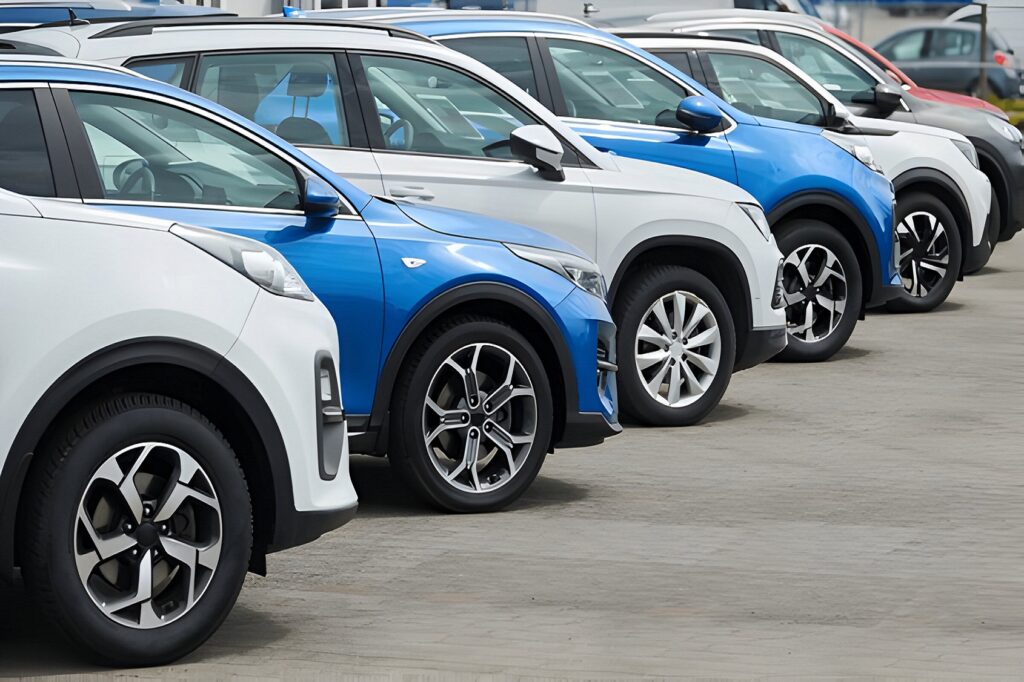How to Get a Dealer’s License for Auto Auction

Obtaining a dealer’s license is a crucial step for anyone interested in buying and selling vehicles at auto auctions. It gives you the legal right to buy and sell cars professionally.
Whether you’re a seasoned entrepreneur or a newcomer to the auto industry, understanding these processes will set you up for success in your new business adventure.
In this blog, we will walk you through the importance of having a dealer’s license and the essential steps to acquire one.
What is an Auto Dealer Auction License?
An auto dealer auction license is a specialized permit that allows individuals or businesses to participate in dealer-only car auctions. These auctions are typically closed to the general public and offer vehicles at wholesale prices. The price is also significantly lower than retail.
The license is a regulatory requirement that ensures only qualified and authorized dealers can buy and sell vehicles in these exclusive settings.
Key Aspects of a Car Dealer Auction License
An auto dealer auction license is not just a piece of paper, It is a critical tool for anyone serious about succeeding in the car dealership industry.
Eligibility
To qualify for a car dealer auction license, applicants must meet specific state requirements. These include business registration, securing a business location, and often obtaining a surety bond.
Access to Wholesale Auctions
With this license, you gain access to a wide range of vehicles at dealer-only auctions, where you can purchase cars at prices that allow for competitive resale.
Legal Compliance
The license serves as proof that you are operating within the legal framework set by your state. It also shows you are adhering to regulations that govern the buying and selling of vehicles.
Why You Need an Auto Dealer Auction License
Obtaining an b license is essential for several reasons. They include the following:
Access to Exclusive Auctions
Dealer-only auctions offer vehicles at wholesale prices, which are often well below what you will find at public auctions or retail. With a car dealer auction license, you can buy cars at a lower prices, increasing your profit margins when you sell.
Legal Complaince
Operating without a dealer auction license can lead to serious legal consequences. These include hefty fines, penalties, and even the risk of your business being shut down. Obtaining your license ensures compliance with state regulations, providing legal protection for your business.
Building Credibility
Having a dealer auction license builds credibility with customers, partners, and other businesses. It shows that you are a legitimate, authorized dealer. These increase trust and lead to more business opportunities.
Greater Business Flexibility
With a dealer license, you’re not limited to buying and selling a few vehicles a year. You can operate on a larger scale, buying multiple vehicles at once and flipping them for a profit. These allow your business to grow more quickly.
Networking Opportunities
Attending dealer-only auctions provides opportunities to network with other dealers. It also helps you form valuable connections that can lead to partnerships, referrals, and insider knowledge about the market.
Access to Better Financing and Insurance
Many financial institutions and insurance companies offer better terms to licensed dealers. This can result in lower interest rates on loans and more comprehensive insurance coverage, reducing your overall business costs.
Steps to Get a Dealer's License for an Auto Auction
Research State Requirements
Every state has different rules and regulations regarding dealer licenses. Start by researching your state’s specific requirements. These include the types of licenses available (wholesale, retail, etc.) and the fees involved.
Establish a Business Entity
This step is necessary to separate your assets from your business liabilities. It also provide legal protection and credibility.
Secure a Business Location
Most states require you to have a physical location to operate as a dealership. This location must meet certain criteria, such as being zoned for commercial use and having proper signage.
Complete Pre-Licensing Education
Some states mandate that you complete a pre-licensing course. These courses cover essential topics such as state laws, ethical practices, and business management. These ensure you are well-prepared to operate legally.
Obtain a Surety Bond
A surety bond is a financial guarantee that protects your clients and the state from any fraudulent activities. The bond amount varies by state, but it’s a standard requirement for obtaining a license.
Submit Your Application
Once you’ve completed the above steps, submit your dealer license application to the relevant state authority. Ensure you include all necessary documentation, such as proof of business registration, lease agreements, and your surety bond.
Pass the Background Check
Most states will require a background check as part of the application process. This check ensures that you have a clean record and are eligible to operate as a dealer.
Prepare for an Inspection
Your business location may be subject to an inspection by state officials to ensure it meets all legal and safety requirements. Be prepared to demonstrate compliance with all local laws.
Receive Your License
Once your application is approved, you will receive your dealer’s license. Display it prominently at your business location, and keep it up to date by renewing it as required by state law.
Wrapping Up
Getting a dealer’s license for auto auctions opens doors to opportunities in the automotive industry and the cutthroat world of car auctions. It also serves as a seal of approval that promotes your business credibility, compliance, and consumer safety.
Recent Posts.
- Guide to Car Shipping for the First Timer – 2026 EditionGuide to Car Shipping for the First Timer – 2026… Read more: Guide to Car Shipping for the First Timer – 2026 Edition
- Top States Americans Are Moving To and FromTop States Americans Are Moving To and From Top States… Read more: Top States Americans Are Moving To and From
- Moving Out of Illinois – Relocation GuideMoving Out of Illinois – Relocation Guide Moving Out of… Read more: Moving Out of Illinois – Relocation Guide


